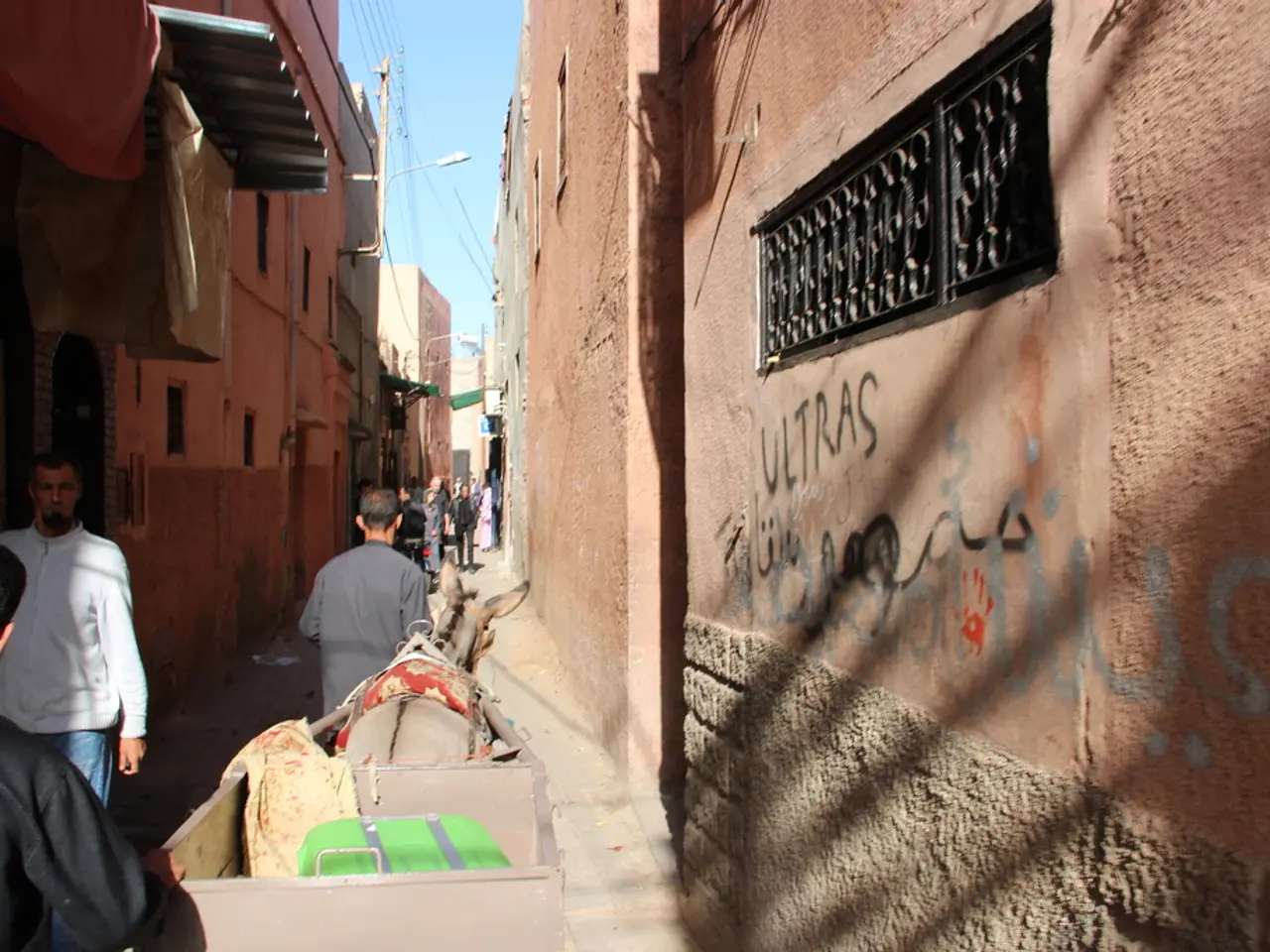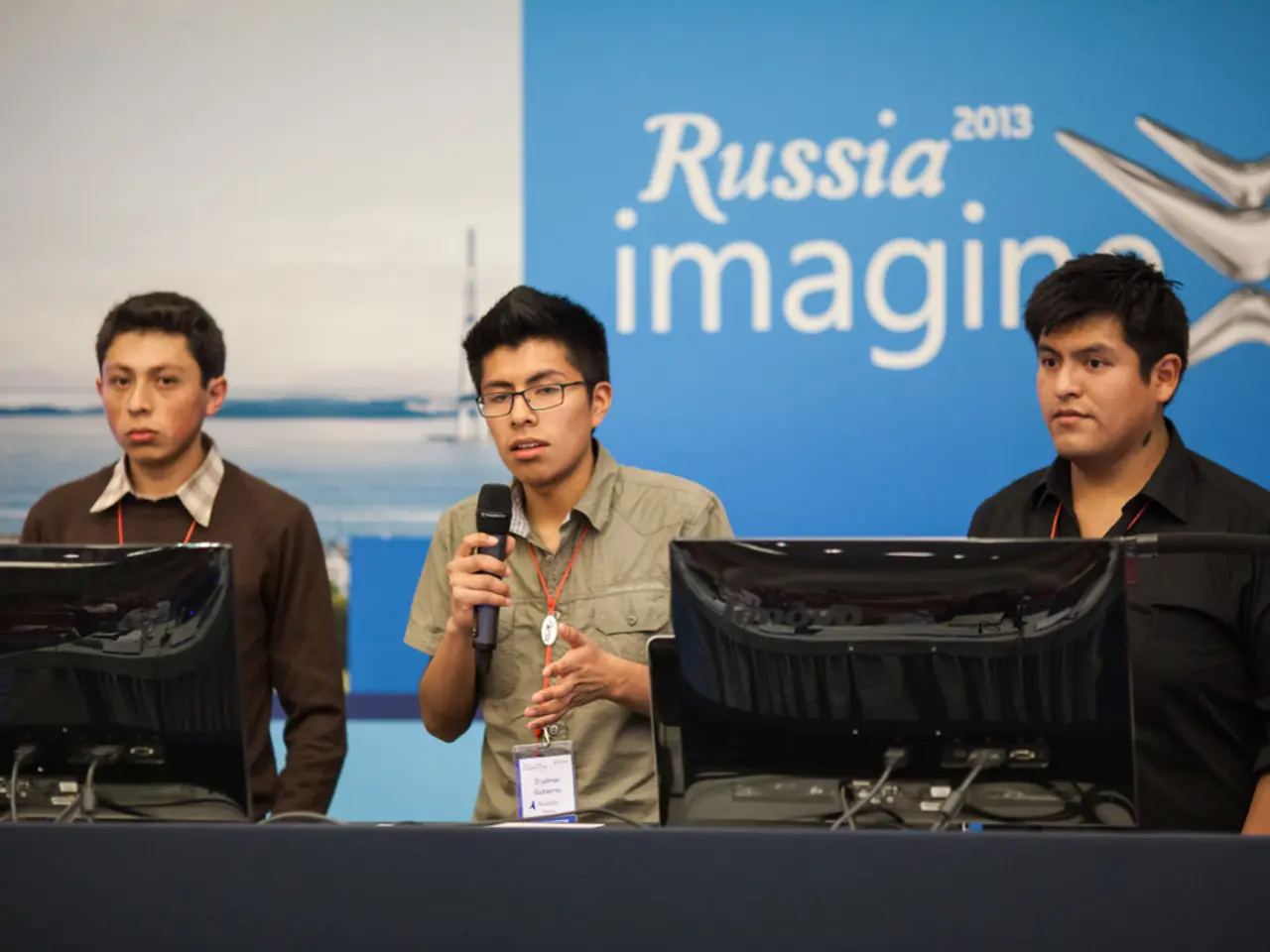Inadequate humanitarian assistance reaching Gaza, according to Germany's assessment
The crisis in Gaza continues to unfold, with more than two million Palestinians facing the threat of starvation. Amidst this dire situation, the German government has expressed concern and called on Israel to ensure the full delivery of aid.
Israel, however, alleges that much of the aid arriving in Gaza is being siphoned off by Hamas, the de facto authority in the territory. This claim has led to Israel imposing stringent controls and restrictions on aid deliveries, causing significant delays and operational inefficiencies.
The Israeli military offensive on Gaza since then has resulted in the deaths of at least 60,249 Palestinians, according to Gaza's health ministry. In response to mounting international criticism, Israel has allowed more trucks to cross the border and foreign nations to carry out airdrops of food and medicines.
However, the amount of aid entering Gaza remains dangerously low, according to international agencies. The real theft of aid since the beginning of the war has been carried out by criminal gangs, under the watch of Israeli forces, according to Jonathan Whittall of OCHA, the United Nations agency for coordinating humanitarian affairs.
The partial suspension of arms deliveries to Israel is one option that has been raised by some countries, including Germany, to pressure Israel into easing the restrictions on aid delivery.
The humanitarian organizations and NGOs, such as the World Food Programme and Egyptian Food Bank, face numerous challenges from these restrictions and delays by Israeli authorities, the breakdown of law and order inside Gaza, and severe risks to workers due to the ongoing conflict.
Despite resumed aid deliveries since May 2025, volumes remain far below the population's urgent needs. Aid is delivered mainly through two border crossings, which remain insufficient to meet the population’s needs amid escalating hunger and malnutrition.
The key parties involved in the aid delivery bottlenecks include the Israeli government and military, Hamas, and humanitarian organizations and NGOs. The Israeli government and military enforce the blockade and control crossings, regularly delaying or denying convoy movements. Hamas, as the de facto authority in Gaza, is accused by Israel of attempting to divert humanitarian supplies to its own use. Humanitarian organizations and NGOs face challenges from restrictions and delays by Israeli authorities, the collapse of internal security in Gaza, and severe risks to workers due to the ongoing conflict.
In a recent security cabinet meeting, the German government discussed "the different options" for putting pressure on Israel, but no decision was taken. The delivery of aid remains very insufficient to alleviate the emergency situation in Gaza. Berlin has taken a tougher line against Israel's actions in Gaza and the occupied West Bank in recent weeks, but the situation on the ground remains critical.
- The unfolding crisis in Gaza, marked by war-and-conflicts, has prompted discussions in the realm of politics, as the German government seeks to pressure Israel to ease restrictions on aid deliveries, partly due to concerns over crime-and-justice accusations of aid being siphoned off by Hamas and intercepted by criminal gangs.
- Amidst general-news reports of the ongoing situation in Gaza, the American Red Cross has highlighted the challenges faced by humanitarian organizations and NGOs due to the war-and-conflicts, including restrictions and delays by Israeli authorities, the breakdown of law and order inside Gaza, and severe risks to workers, all of which hinder the delivery of much-needed aid.






